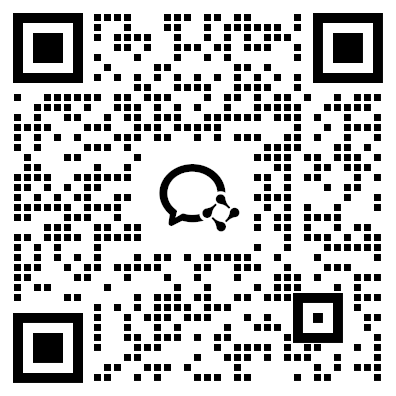选课中心
7099人选课
GRE公开讲座
0元
GMAT公开讲座
0元
一对一体验课
99元
GRE模考网站
10000人
托福备考练习HOT
39209人预约
GRE辅导课程
17537 人
GMAT辅导课程
17537 人
托福辅导课程
17537 人
【定制】1v1
私人订制
资料下载
考前冲刺

扫码关注掌握一手留学资讯
回复XDF免费领
水平测试和备考资料

扫码关注公众号
对于GRE阅读部分,最好的练习资料就是模拟资料。通过模拟练习,可以让大家更好地发现自己在备考中的不足,重点攻克自己的短板内容,有效的提升阅读分数。下面新东方在线GRE频道为大家整理了详细的内容,供大家参考。
Present-day philosophers usually envision theirdiscipline as an endeavor that has been, sinceantiquity, distinct from and superior to anyparticular intellectual discipline, such astheology or science. Such philosoph- ical concernsas the mind-body problem or, more generally, thenature of human knowledge they believe, are basichuman questions whose tentative philosophicalsolutions have served as the necessary foundations on which all other intellectualspeculation has rested.
The basis for this view, however, lies in a serious misinterpretation of the past, a projection ofmodern concerns onto past events. The idea of an autonomous discipline called "philosophy," distinct from and sitting in judgment on such pursuits as theology and science turns out, onclose examination, to be of quite recent origin. When, in the seventeenth century, Descartesand Hobbes rejected medieval philosophy, they did not think of themselves, as modernphilosophers do, as proposing a new and better philosophy, but rather as furthering "thewarfare between science and theology." They were fighting, albeit discreetly, to open theintellectual world to the new science and to liberate intellectual life from ecclesiasticalphilosophy and envisioned their work as contributing to the growth, not of philosophy, but ofresearch in mathematics and physics. This link between philosophical interests and scientificpractice persisted until the nineteenth century, when decline in ecclesiastical power overscholarship and changes in the nature of science provoked the final separation of philosophyfrom both.
The demarcation of philosophy from science was facilitated by the development in the earlynineteenth century of a new notion, that philosophy's core interest should be epistemology, the general explanation of what it means to know something. Modern philosophers now tracethat notion back at least to Descartes and Spinoza, but it was not explicitly articulated untilthe late eighteenth century, by Kant, and did not become built into the structure of academicinstitutions and the standard self-descriptions of philosophy professors until the late nineteenthcentury. Without the idea of epistemology, the survival of philosophy in an age of modernscience is hard to imagine. Metaphysics, philosophy's traditional core-considered as the mostgeneral description of how the heavens and the earth are put together-had been renderedalmost completely meaningless by the spectacular progress of physics. Kant, however, byfocusing philosophy on the problem of knowledge, managed to replace metaphysics withepistemology, and thus to transform the notion of philosophy as "queen of sciences" into thenew notion of philosophy as a separate, foundational discipline. Philosophy became"primary" no longer in the sense of "highest" but in the sense of "underlying." After Kant, philosophers were able to reinterpret seventeenth-and eighteenth-century thinkers asattempting to discover "How is our knowledge possible?" and to project this question back evenon the ancients.
Which of the following best expresses the author's main point?
A.Philosophy's overriding interest in basic human questions is a legacy primarily of the workof Kant.
B.Philosophy was deeply involved in the seventeenth-century warfare between science andreligion.
C.The set of problems of primary importance to philosophers has remained relatively constantsince antiquity.
D.The status of philosophy as an independent intellectual pursuit is a relatively recentdevelopment.
E.The role of philosophy in guiding intellectual speculation has gradually been usurped byscience.
According to the passage, present-day philosophers believe that the mind-bodyproblem is an issue that
A.has implications primarily for philosophers
B.may be affected by recent advances in science
C.has shaped recent work in epistemology
D.has little relevance to present-day philosophy
E.has served as a basis for intellectual speculation since antiquity
According to the author, philosophy became distinct from science and theology duringthe
A.ancient period
B.medieval period
C.seventeenth century
D.nineteenth century
E.twentieth century
The author suggests that Descartes' support for the new science of the seventeenthcentury can be characterized as
A.pragmatic and hypocritical
B.cautious and inconsistent
C.daring and opportunistic
D.intense but fleeting
E.strong but prudent
The author of the passage implies which of the following in discussing thedevelopment of philosophy during the nineteenth century?
A.Nineteenth-century philosophy took science as its model for understanding the bases ofknowledge.
B.The role of academic institutions in shaping metaphysical philosophy grew enormouslyduring the nineteenth century.
C.Nineteenth-century philosophers carried out a program of investigation explicitly laid out byDescartes and Spinoza.
D.Kant had an overwhelming impact on the direction of nineteenth-century philosophy.
E.Nineteenth-century philosophy made major advances in understanding the nature ofknowledge.
With which of the following statements concerning the writing of history would theauthor of the passage be most likely to agree?
A.History should not emphasize the role played by ideas over the role played by individuals.
B.History should not be distorted by attributing present-day consciousness to historicalfigures.
C.History should not be focused primarily on those past events most relevant to the present.
D.History should be concerned with describing those aspects of the past that differ most fromthose of the present.
E.History should be examined for the lessons it can provide in understanding current problems.
The primary function of the passage as a whole is to
A.compare two competing models
B.analyze a difficult theory
C.present new evidence for a theory
D.correct an erroneous belief by describing its origins
E.resolve a long-standing theoretical controversy
正确答案:D E D E D B D
以上就是关于“GRE阅读模拟在线练习附答案二百八十四”的内容,更多精彩内容,请关注GRE频道!

 资料下载
资料下载
2024中国学生留学备考白皮书下载
发布时间:2024-05-20添加新东方在线美研助教号
回复【资料】获取
GRE高频真词表资料下载
发布时间:2024-05-20添加新东方在线美研助教号
回复【资料】获取
GRE数学-OG官方150题资料下载
发布时间:2024-05-20添加新东方在线美研助教号
回复【资料】获取
GRE数学常用词汇资料下载
发布时间:2024-05-20添加新东方在线美研助教号
回复【资料】获取
2024GRE数学重点突破资料下载
发布时间:2024-05-20添加新东方在线美研助教号
回复【资料】获取
2024GMAT模考题&答案资料下载
发布时间:2024-05-20添加新东方在线美研助教号
回复【资料】获取
GRE&GMAT阅读难句教程资料下载
发布时间:2024-05-20添加新东方在线美研助教号
回复【资料】获取
2024年托福考试重点题目资料下载
发布时间:2024-05-20添加新东方在线美研助教号
回复【资料】获取
托福独立口语必练70题资料下载
发布时间:2024-05-20关注新东方在线美研订阅号
回复【GRE】获取
托福口语综合口语精听50题节选资料下载
发布时间:2024-05-20添加新东方在线美研助教号
回复【资料】获取
托福听力1200词资料下载
发布时间:2024-05-20添加新东方在线美研助教号
回复【资料】获取
托福写作综合写作练习册-听力精听25篇资...
发布时间:2024-05-20添加新东方在线美研助教号
回复【资料】获取
托福写作综合写作练习册-阅读改写50篇资...
发布时间:2024-05-20添加新东方在线美研助教号
回复【资料】获取
托福阅读核心词表1500词(前30天优先必学...
发布时间:2024-05-20添加新东方在线美研助教号
回复【资料】获取

添加美研助教号,
回复【GRE】获取备考必看资料包

 推荐阅读
推荐阅读
备考GRE,对大部分同学来说也是一个新挑战,尤其是阅读部分,如何在有限的时间内大幅提高阅读速度呢? 快来本文看看吧。
本文今天为大家带来的是gre考试中easy等级难度的阅读片段,一起来看看吧!
2022年3月13-19日GRE阅读题回忆及答案(六)来啦,来本文和新东方在线GRE一起来看看详细信息吧。
2022年3月13-19日GRE阅读题回忆及答案(五)来啦,来本文和新东方在线GRE一起来看看详细信息吧。
2022年3月13-19日GRE阅读题回忆及答案(四)来啦,来本文和新东方在线GRE一起来看看详细信息吧。
2022年3月13-19日GRE阅读题回忆及答案(三)来啦,来本文和新东方在线GRE一起来看看详细信息吧。
2022年3月13-19日GRE阅读题回忆及答案(二)来啦,来本文和新东方在线GRE一起来看看详细信息吧。
2022年3月13-19日GRE阅读题回忆及答案(一)来啦,来本文和新东方在线GRE一起来看看详细信息吧。
2022年2月13日GRE阅读题回忆及答案来啦,来本文和新东方在线GRE一起来看看详细信息吧。
2022年2月13日GRE阅读题回忆及答案来啦,来本文和新东方在线GRE一起来看看详细信息吧。


 GRE/GMAT直播精讲小班
GRE/GMAT直播精讲小班
 GRE/GMAT精讲智能系统课
GRE/GMAT精讲智能系统课
 托福直播/精讲课(30天/60天)
托福直播/精讲课(30天/60天)
添加美研助教号,
回复【GRE】获取备考必看资料包

 资料下载
资料下载
添加新东方在线美研助教号
回复【资料】获取
添加新东方在线美研助教号
回复【资料】获取
添加新东方在线美研助教号
回复【资料】获取
添加新东方在线美研助教号
回复【资料】获取
添加新东方在线美研助教号
回复【资料】获取
添加新东方在线美研助教号
回复【资料】获取
添加新东方在线美研助教号
回复【资料】获取
添加新东方在线美研助教号
回复【资料】获取
关注新东方在线美研订阅号
回复【GRE】获取
添加新东方在线美研助教号
回复【资料】获取
添加新东方在线美研助教号
回复【资料】获取
添加新东方在线美研助教号
回复【资料】获取
添加新东方在线美研助教号
回复【资料】获取

 阅读排行榜
阅读排行榜
 相关内容
相关内容